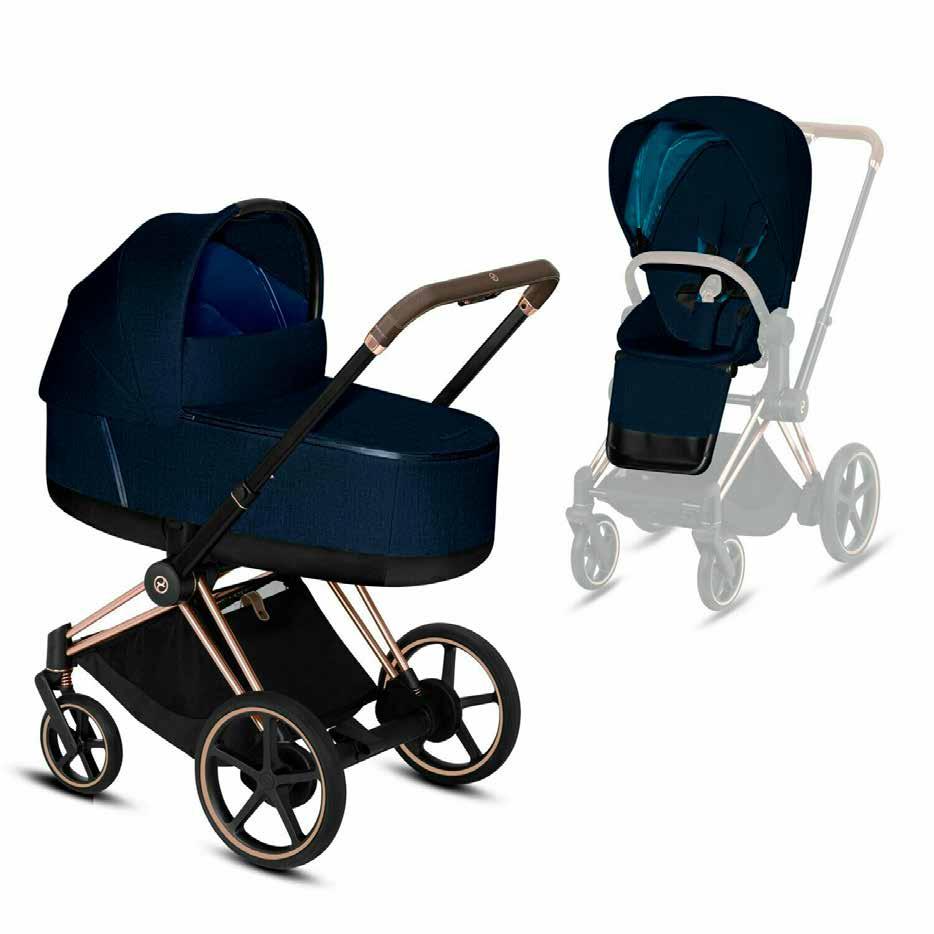
3 minute read
YES!
SOMETIMES IT’S OK TO WAKE A BABY FROM A NAP
By Colleen Fisher Tully
Advertisement
WHEN YOUR BABY HASN’T EATEN IN A COUPLE OF HOURS
You should wake up your newborn to ensure she’s feeding every few hours, says Tracey Bridger, a paediatric endocrinologist in St. John’s. Regular feedings are important, at least until your baby has regained her birth weight. According to paediatric sleep specialist and University of Toronto associate professor Robyn Stremler, waking a newborn from long stretches in the daytime to feed also signals to them to be more active in the day, which in turn helps shift those long stretches of sleep to nighttime.
But once your baby is a healthy weight and is feeding, peeing and pooping regularlygenerally after the first couple of weeks-you can rest assured she can get that sleep and wake up to eat later, say Bridger. Because newborns have no concept of day or night, they can often sleep for long periods at all times of the day. This can be unsettling for some parents who worry about good sleep habits early on, but Victoria-based sleep consultant Donna McLachlan says there’s no need for a schedule in the first four weeks. They need the sleep, so once they’re feeding well, you can rest assured that they will wake up when hungry.
WHEN YOUR BABY IS ON A NAP SCHEDULE AND HE HAS SLEPT PAST IT.
By about four or five months, when your baby has established a fairly regular nap cycle, McLachlan says it becomes possible for her to oversleep and throw off a healthy routine. “I tell parents when they have jetlag, they feel awful because they’re overtired and off their rhythm, and that’s how babies feel when they’re ‘off schedule,’ she explains. To keep babies on the right eat-play-sleep pattern during the day-which helps them sleep better at night-McLachlan recommends roughly sticking to a daytime schedule and waking them up if needed. In other words, don’t sweat an extra 20 minutes, but be prepared to wake them before they’ve clocked an additional hour or more of sleep during the day.
The one time when it’s a good idea to let your baby get some extra shut-eye at naptime? When she’s sick. Bridger says we all need a little extra sleep when we’re fighting off an illness-just make sure your baby is feeding enough to be nourished and stay hydrated. And ensure she’s not running a rectal temperature of 38C or higher.
WHEN IT’S GETTING CLOSE TO BEDTIME
It’s not uncommon for babies to fall asleep in the early evening, especially after a busy day. For very young babies, an evening nap might not interfere with bedtime at all, but for those over three or four months, it can make for a long night. Stremler says you can try to wake your baby from a late-day nap, but it might not work, so she recommends just trying again the next day to get that last nap in earlier. “If naps get messed up one day, it’s not the end of the world,” she says. But if you think your baby can benefit from a quick catnap in the evening before bed, think again. With the exception of newborns who drift in and out of sleep day and night, McLachlan says older babies may seem refreshed after a 10- or 20-minute nap, but they’ll soon become irritable because it’s just not enough rest. “A little power nap tricks their bodies into thinking they’ve had a restorative nap when they haven’t, which quickly leads to chronic overtiredness.”

Bridger says if an evening nap becomes the new normal that keeps him awake until late - especially at six months or older-it’s a good idea to gently wake him and go through your nighttime routine (e.g. dinner, a little playtime, a bath, a story) to fill the time before getting to bed at a reasonable hour. Then, try to nudge his other naps to earlier in the day.
WHEN YOU WANT HER TO SLEEP LONGER AT NIGHT.
Unfortunately, waking a baby from a nap early doesn’t help her sleep more that night. In fact, the opposite is true. “If babies are constantly overtired, they fight sleep because their cortisol [stress hormone] levels are so high,” explains McLachlan. “The more rested a baby is, the easier it is for her to get to sleep and stay asleep,” she says. Stremler adds that splitting up sleep throughout the day with naps is key to proper development because important brain activity happens during those sleeps.
As for our family, we often chose tranquility in the car over waking Rowan from her evening nap. It meant a late night for everyone, but within a day or so, our daughter was always back to her normal sleeping pattern again. “As parents, we drive ourselves crazy sometimes when we don’t need to,” says Bridger. “The key at any age is to get enough good quality sleep within a 24-hour periodhowever that works for the child and the family.”










